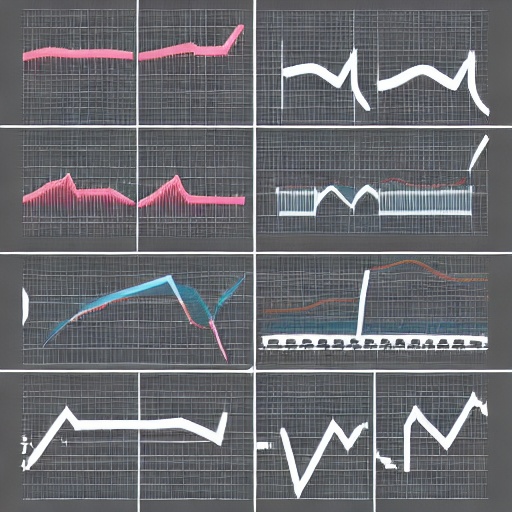Have you ever wondered what it takes to become a data analyst? Data analysts are responsible for converting data into insights that can help organizations make informed decisions. Data analyst internships are a great way to gain the skills and experience needed to pursue a career in this field. In this blog post, we’ll explore everything you need to know about data analyst internships, from what they entail to how to land one. Keep reading to learn more!
What is a data analyst internship, and what do data analyst interns do day-to-day?
A data analyst internship is a wonderful opportunity to gain valuable experience in the fast-paced world of data analysis. An intern in this field will cover a variety of topics and tasks, such as gathering data from surveys and studies, cleaning and organizing raw or unstructured data sets, creating computer models using programing tools, running statistical tests on gathered information, and creating reports that outline findings or suggest solutions to complex problems.
On any given day, a data analyst intern might be engaging with databases, performing research for an upcoming project, crafting visual models to analyze trends in the data, cross-referencing different sources of information to ensure accuracy internally, or engaging with outside stakeholders. It’s an exciting field that presents plenty of challenge and knowledge along the way.
What are some of the skills you need to be a successful data analyst intern?
Being a successful data analyst intern requires a wide range of skills, from the technical to the soft. Most employers expect candidates to have experience with:
- regression modeling, prediction, forecasting, and time series analysis
- data scripting languages (e.g., SQL, Python, R, etc.) or mathematical software (e.g., R, SAS, or Matlab)
- big data processing
- machine-learning methodologies (e.g., supervised and unsupervised learning, deep learning, etc.)
- clustered data processing (e.g., Hadoop, Spark, Map-reduce, and Hive)
Additionally, you will be expected to be able to communicate technically with your team to effectively explain complex data or implications to team members without a technical background.
Finally, an inquisitive mindset and problem-solving attitude, paired with organization and prioritization skills, go a long way towards finding solutions and making progress. With all these components combined, you can be sure that your data analysis internship will be successful.
Some employers prefer to hire students who are currently enrolled in a doctoral program or have obtained an equivalent degree in mathematics, statistical analysis, computer science, and other related fields.
What are some common mistakes made by data analyst interns that you should avoid at all costs?
When it comes to data analyst internships, there are some common mistakes that can prove costly if not avoided. From overlooking small details in the data to occupying an unnecessarily large amount of time on a task might seem minor but can make a big difference in your performance as an analyst. Failing to ask meaningful questions or skipping over important tests while verifying data integrity are two other common errors that data analyst interns should be aware of and strive to avoid. Being mindful of these mistakes can make all the difference in helping you take full advantage of your internship experience.
Are data analyst interns paid well?
Data analyst interns are often paid well. According to ZipRecruiter, the average salary for data analyst internships is $36 per hour. However, the exact salary may vary depending on the company, experience level, and location.
Companies that hire data analyst interns include:
Also, the United Nations and other government agencies hire data analyst interns to help analyze data to make important decisions.
Do companies hire students from their data analyst internship program?
The short answer is yes, many companies do hire students who have participated in their data analyst internship programs. Companies recognize the value that data analysts can bring to their organizations, and they often view interns as a potential source of talent. Many employers offer internships as a way to evaluate how well someone performs in their environment and with their specific tasks. If an intern passes all of the tests and performs well during the internship period, then they may be offered a full-time position.
In addition, some companies provide incentives for interns to stay on board after their initial internship period has ended. This could include offering additional training opportunities or higher salaries than those offered to new hires. While there are no guarantees that an intern will be hired after their program is finished, it is definitely possible! With hard work and dedication throughout the program, students can increase their chances of being hired after graduating from the data analyst internship program.
What are data analyst internship interviews like?
Data analyst internship interviews typically involve a variety of questions related to data analysis and queries. Some of the topics discussed during such an interview include:
- Analyzing data sets
- Exploring trends and correlations within the data
- Working with databases, including SQL query syntax
- Writing reports and summaries regarding the data analysis results
- Answering general questions about the company and its operations
Interviews typically involve a mix of technical and non-technical questions. Employers may also ask applicants to solve sample problems or present their portfolio of past projects. Interviewers will be looking to see that applicants have a good grasp on fundamental principles of data analytics as well as any specialized skills they possess.
For tips on preparing for an interview, check TUN’s interview with Jia Wei Cao, a career coach at Stony Brook University’s Career Center here, or watch the video below.
Conclusion
A data analyst internship can give you the experience and skills you need to start your career in this exciting field. While it may be daunting to try and land an internship with no experience, there are a few things you can do to make yourself a more attractive candidate. Once you have secured an internship, take advantage of all opportunities that come your way and avoid making some of the common mistakes others have made before you. With hard work and dedication, you can use your data analyst internship as a springboard to launch your successful career.
For more resources on internships and careers, check here.




